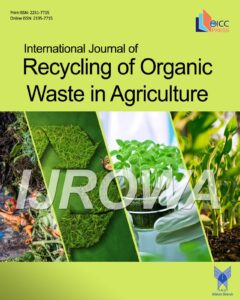Sustainability of a rice husk recycling scheme
Authors
Abstract
Purpose To ensure the sustainability of rice husk recycling schemes, there are essential conditions that should be considered. In this study, a system in which a fertilizer was obtained after rice husk heat treatment, which also produces hot water as a heat recovery strategy, was considered, and its financial sustainability, based on different conditions in place, was then evaluated.
Method Based on a previous study, three essential conditions that are necessary for the sustainability of the system were identified (i.e., free or low-cost rice husk collection and hauling, production of silica in the amorphous state, and complete recycling of rice husk ash). The necessity of these conditions was confirmed based on the sustainability of the financial balance of the system.
Results A 24-h d-1 operated system is more profitable than one that is operated at 6-h d-1. The pelletizing process is costly; however, the fertilizer in the pellet form can be sold at a relatively higher price. The system was unsustainable when rice husk collection and hauling as well as ash disposal fees were charged.
Conclusion Therefore, the cost of rice husk collection, hauling, and ash disposal as well as the amorphous state of the ash were confirmed as conditions that are necessary to ensure the sustainability of a rice husk recycling scheme.




